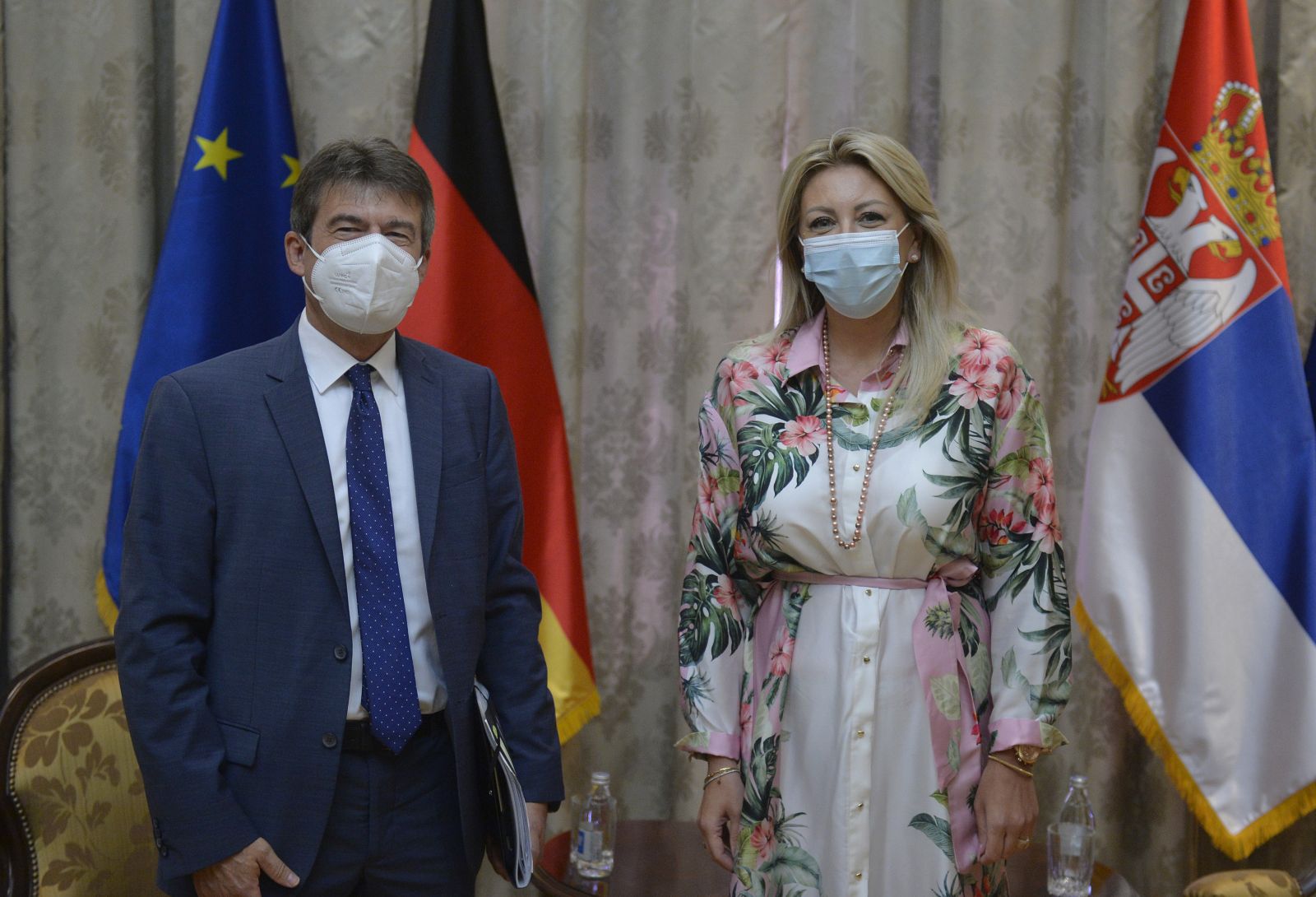
Minister of European Integration and National IPA Coordinator Jadranka Joksimović has met today with Klaus Müller, the new KfW Development Bank Regional Director for Southeast Europe and Turkey. The interlocutors have discussed Serbia’s accession to the European Union and Germany’s assistance in the realisation of projects aimed at accelerating the accession.
Joksimović has informed Müller about the activities the Serbian Government has been carrying out in order to accelerate the pace of the European integration process in line with the revised EU enlargement methodology.
“Given that we have met all benchmarks necessary for clusters 3 – Competitiveness and Inclusive Growth and 4 – Green Deal and Sustainable Connectivity, we expect that, by the end of the year, our European partners will valorise our work through formal progress in the negotiations”, said Joksimović, according to the MEI press release.
She has stressed that the energy sector and the sector for environmental protection and climate change, which are the largest areas of development cooperation with Germany, are vital for reaching the goals of sustainable development envisaged by the Green Agenda, as an instrument of the EU Green Deal for the Western Balkans, through Serbia’s European Integration process.
Klaus Müller has stated that cooperation with Serbia is important for the organisation he represents, particularly given the cooperation realised so far and Serbia’s role in the region.
“With over EUR 1 billion, the German Development Bank has supported projects that we have jointly selected as strategic priorities for Serbia’s European integration and your overall development”, underlined Müller, expressing his belief that future joint work will be even more fruitful.
Joksimović and Müller have particularly discussed the possibilities for additional improvement of coordination of development assistance to sector policies, notably the optimisation and more efficient use of funds available from bilateral and international donors, primarily from the European Union’s pre-accession funds.
Source: Tanjug








